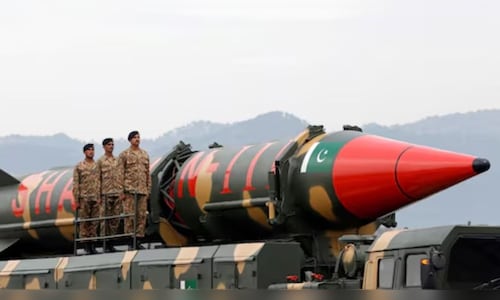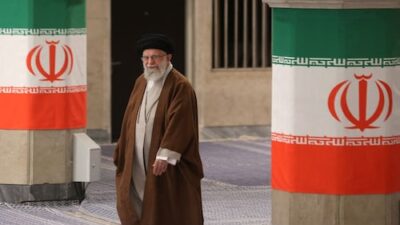A report from Foreign Affairs magazine indicates that if this initiative succeeds, it would represent a notable expansion of Islamabad’s strategic military capabilities and might prompt Washington to officially recognize it as a nuclear adversary.
“While Pakistan asserts that its nuclear programme is solely intended to deter India, which has a conventional military advantage, U.S. intelligence agencies have determined that the Pakistani military is working on an ICBM that could target the continental United States,” the report stated.
U.S. intelligence believes that this potential ICBM programme is part of Pakistan’s broader strategy to deter both India and the United States from intervening in South Asian conflicts in the future, according to Foreign Affairs.
Read more: US lawmakers introduce bill to bar Chinese AI in US government agencies
“By acquiring such a capability, Pakistan may aim to dissuade the United States from attempting to neutralize its nuclear stockpile through a preventive strike or from supporting India in any future conflict,” it continued.
ICBMs typically have ranges exceeding 5,500 km and can be fitted with either nuclear or conventional warheads.
The China angle
The report indicates that Pakistan’s quest for long-range missile technology has been bolstered by its close relationship with China. Although Beijing has not openly endorsed Islamabad’s ICBM development, it has continuously provided military and economic support, potentially enhancing Pakistan’s missile capabilities indirectly.
The Foreign Affairs report highlighted that China’s backing may involve implicit approval of such initiatives, which could complicate the strategic landscape for both New Delhi and Washington.
For decades, Pakistan has regarded its nuclear arsenal as a counterbalance to India’s conventional military dominance. However, the push for an ICBM signifies a significant escalation in the regional arms race, experts familiar with South Asian defense dynamics told the publication.
Security implications
Concerns regarding the security and control of Pakistan’s nuclear assets have long been a source of unease for U.S. policymakers. Given Pakistan’s history of instability and the presence of terrorist groups, any enhancement of its long-range nuclear capabilities raises renewed apprehensions about unauthorized access or security failures, per Foreign Affairs.
“U.S. officials have indicated that if Pakistan achieves an ICBM capability, Washington will have no option but to consider the country a nuclear adversary—no other nation with ICBMs capable of targeting the United States is regarded as an ally,” the report observed.
As the nuclear balance shifts in Asia, both the U.S. and India are likely to reevaluate their strategic approaches. The rise of Pakistan as a long-range nuclear threat introduces new complexities to the global security landscape.
Read more: Israel kills currency exchange head in Lebanon for allegedly routing funds to Hezbollah



